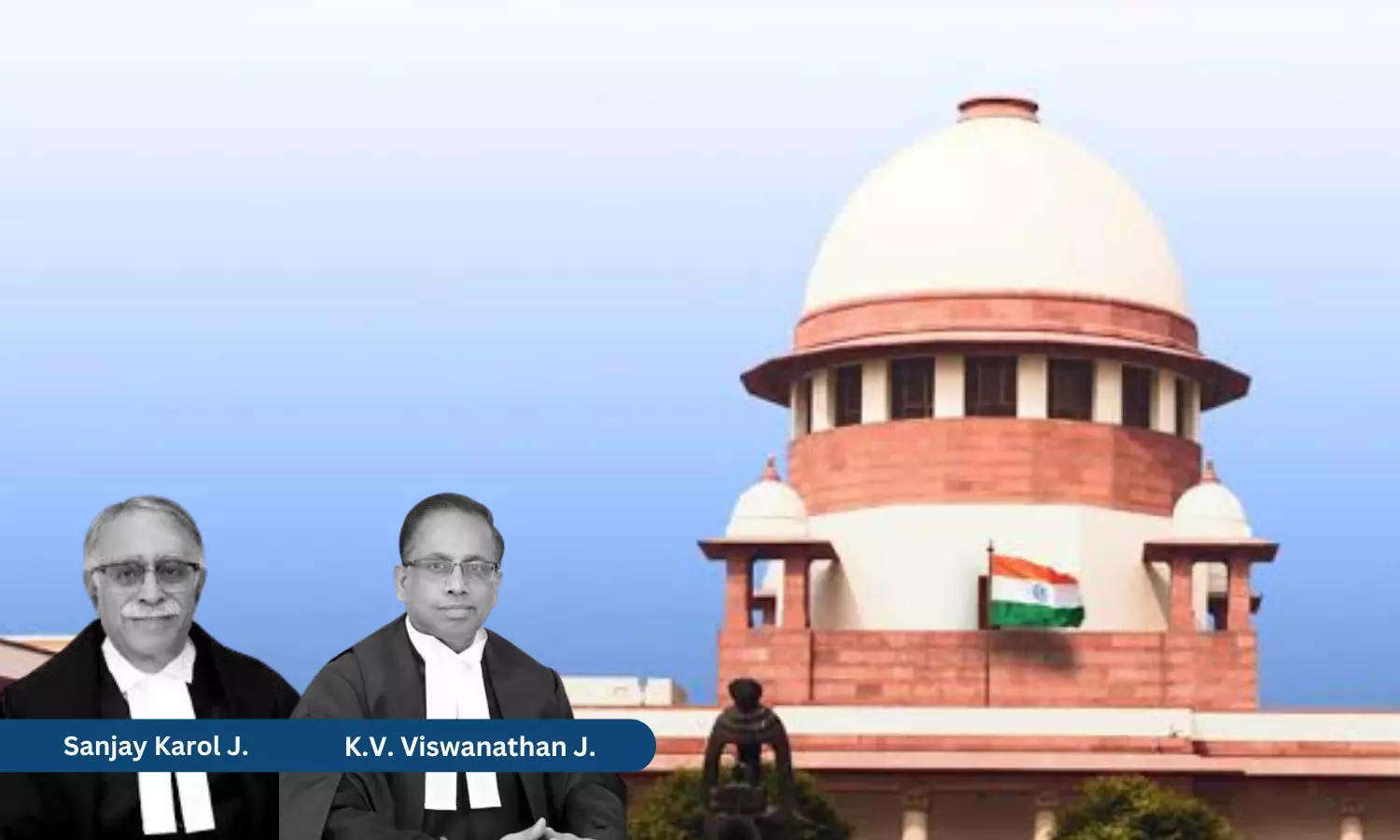
Inhuman Practice Of Two-Finger Test Not To Be Repeated On Sexual Assault Victims: Supreme Court While Upholding Gang Rape Conviction
 |
|The Court reiterated this aspect even though the two-finger test in this case was carried out in 2004, long before the awareness about its inhumane nature was created, so that in future such practices do not recur.
The Supreme Court while upholding a gang rape conviction, re-emphasized that the inhuman practice of two-finger test shall not be repeated on sexual assault victims.
The Court was deciding a Criminal Appeal filed by an accused, challenging the Judgment of the Madhya Pradesh High Court, which confirmed his conviction and sentence imposed by the Special Judge for the offences under Sections 366, 376(2)(g), and 342 of the Indian Penal Code, 1860 (IPC) and Section 3(2)(v) of the Scheduled Castes and Scheduled Tribes (Prevention of Atrocities) Act, 1989 (SC/ST Act).
The two-Judge Bench comprising Justice Sanjay Karol and Justice K.V. Viswanathan remarked, “… we need to comment on one aspect of the matter. The prosecutrix had been subjected to the two-finger test, though the medical examination is of 29.06.2004 and long before the judgments of this Court in Lillu alias Rajesh and Another vs. State of Haryana, (2013) and State of Jharkhand vs. Shailendra Kumar Rai alias Pandav Rai, (2022). We are only re-emphasizing this aspect so that this obnoxious, inhuman and degrading practice is not repeated on victims of sexual assault.”
The Bench reiterated this aspect even though the two-finger test in this case was carried out in 2004, long before the awareness about its inhumane nature was created, so that in future such practices do not recur.
Advocate Susheel Tomar appeared on behalf of the Appellant/Accused while Advocate Sarthak Raizada appeared on behalf of the Respondent/State.
Brief Facts
As per the prosecution case, a missing report was lodged in 2004 at the police station. The Complainant informed that his daughter (victim) went to see the ‘barat’ at the house of a person along with another. It was averred that the victim did not return home. During investigation, the victim was recovered from the house of the Appellant’s wife. It was alleged that the accused no. 2 abducted the victim and raped her by threatening to kill her and the Appellant (accused no. 1) helped him in committing the offence by keeping him in his room.
The Appellant was convicted for the offences under Sections 366. 376(2)(g), and 342 of the IPC and Section 3(2)(v) of the SC/ST Act. The accused no. 2 was sentenced for the same offences as that of the Appellant except that there was no conviction and sentence under the SC/ST Act. The High Court confirmed the same. Being aggrieved by his conviction, the Appellant was before the Apex Court.
Reasoning
The Supreme Court in view of the above facts, observed, “… it is very clear that in a case of gang rape under Section 376(2)(g), an act by one is enough to render all in the gang for punishment as long as they have acted in furtherance of the common intention. Further, common intention is implicit in the charge of Section 376(2)(g) itself and all that is needed is evidence to show the existence of common intention.”
The Court noted that a reading of the evidence of the prosecutrix makes it amply clear that she was subjected to forcible sexual intercourse against her consent and she has also specifically denied the suggestion that she went with the accused no. 2 on her free will.
“The Court notices in Patan Jamal Vali (supra) that the amendment has decreased the threshold of proving that the crime was committed on the basis of the caste identify to a threshold where mere knowledge is sufficient to threshold a conviction. The Court also noticed that presumption in Section 8 which provided that if the accused was acquainted with the victim or his family, the court shall presume that the accused was aware of the caste or tribal identity of the victim unless proved otherwise”, it further said.
The Court added that there is no evidence whatsoever to establish the fact that the victim’s caste identity was one of the grounds for the occurrence of the offence.
Accordingly, the Apex Court partly allowed the Appeal, upheld the conviction under the IPC provisions, and set aside the conviction under the SC/ST Act.
Cause Title- Raju @ Umakant v. The State of Madhya Pradesh (Neutral Citation: 2025 INSC 615)
Appearance:
Appellant: AOR Sanjeev Malhotra, Advocates Susheel Tomar, Vishnu Kant, Harshita Verma, and Avinash Tiwari.
Respondent: AOR Mrinal Gopal Elker, Advocates Sarthak Raizada, Mukesh Kumar Verma, Aditya Chaudhary, and Chhavi Khandelwal.